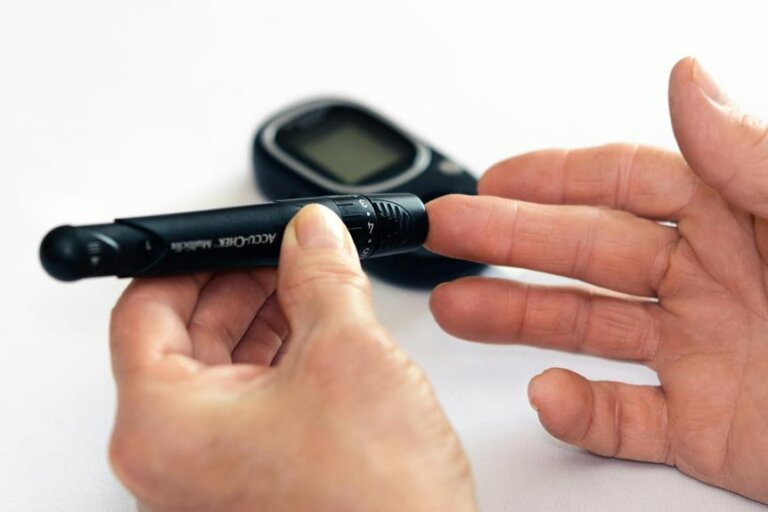The Latest Research on Diabetes-Associated Cancer
Explore the latest findings in diabetes-associated cancer:
- Uncovering epidemiological trends
- Deciphering molecular mechanisms
- Discovering novel biomarkers
- Advancing therapeutic strategies
- Outlining future research directions
As you navigate through the intricate interplay between diabetes and cancer, a new realm of possibilities emerges, shedding light on potential breakthroughs that could revolutionize treatment approaches and enhance patient outcomes.
Epidemiological Trends and Risk Factors
Explore the rising incidence of diabetes-associated cancer and key risk factors contributing to this correlation. As you delve into the epidemiological trends, you'll notice a concerning increase in the number of cancer cases among individuals with diabetes. Studies have shown a strong association between diabetes and certain types of cancer, highlighting the importance of understanding the underlying risk factors. One significant risk factor is obesity, which is prevalent among individuals with diabetes and is known to promote cancer development. Additionally, high levels of insulin and insulin-like growth factors in individuals with diabetes can also play a role in cancer progression.
Furthermore, chronic inflammation, a common feature of diabetes, has been linked to the development of cancer. Understanding these risk factors is crucial in developing effective prevention and treatment strategies for individuals with diabetes at a higher risk of cancer. By addressing these factors proactively, healthcare providers can potentially reduce the burden of diabetes-associated cancer and improve patient outcomes.
Molecular Mechanisms Underlying Connection
The correlation between diabetes and cancer extends beyond epidemiological trends and risk factors, delving into the molecular mechanisms underlying this connection. One key aspect is insulin resistance, common in type 2 diabetes, which can lead to increased insulin levels in the blood. Insulin acts as a growth factor, promoting cell proliferation and inhibiting cell death, potentially fueling cancer development.
Additionally, chronic inflammation, characteristic of diabetes, creates an environment supportive of tumor growth. High blood sugar levels in diabetes can also contribute directly to DNA damage, increasing the risk of mutations that can lead to cancer. Moreover, the PI3K/AKT/mTOR pathway, often dysregulated in diabetes, plays a crucial role in cell growth and survival, linking diabetes to cancer development.
Understanding these molecular mechanisms is vital for developing targeted therapies that address both diabetes and cancer simultaneously, improving outcomes for individuals affected by these conditions.
Novel Biomarkers for Early Detection
Unlocking the potential of novel biomarkers holds promise for early detection in diabetes-associated cancer research. These biomarkers are crucial indicators that can signal the presence of cancer at its early stages, allowing for timely intervention and improved outcomes.
By identifying specific molecules or genetic markers in bodily fluids or tissues, researchers can develop tests that help detect cancer before symptoms appear. This early detection can lead to more effective treatment strategies and ultimately improve survival rates for individuals with diabetes-associated cancer.
Recent advancements in technology have enabled the discovery of new biomarkers that show great potential in revolutionizing early cancer detection. These biomarkers not only offer a way to identify cancer early but also provide insights into the underlying mechanisms of cancer development in individuals with diabetes. Through ongoing research efforts, scientists aim to further validate these novel biomarkers and integrate them into routine screening protocols for individuals at risk.
Incorporating these cutting-edge biomarkers into clinical practice could transform the landscape of diabetes-associated cancer management, offering new hope for early diagnosis and improved patient outcomes.
Therapeutic Strategies and Clinical Trials
Investigating therapeutic strategies and conducting clinical trials are essential components in advancing the management of diabetes-associated cancer. These trials aim to evaluate the effectiveness of various treatment options, such as targeted therapies, immunotherapies, and combination approaches tailored to this specific patient population.
One promising area of research involves repurposing existing diabetes medications for cancer treatment, leveraging their known safety profiles and mechanisms of action.
Clinical trials also play a crucial role in identifying potential drug interactions between diabetes and cancer medications, ensuring optimal treatment outcomes. Through these trials, researchers can gather valuable data on the efficacy and safety of different therapeutic regimens, ultimately guiding clinical decision-making for healthcare providers.
Furthermore, these studies help in personalizing treatment plans based on individual patient characteristics, such as diabetes control status and cancer stage. By participating in clinical trials, patients with diabetes-associated cancer not only access cutting-edge treatments but also contribute to expanding the knowledge base and improving outcomes for future patients in similar circumstances.
Future Perspectives and Research Directions
Exploring novel avenues for research and innovative approaches will be pivotal in shaping the future landscape of diabetes-associated cancer studies. To advance the field, you should focus on identifying specific molecular pathways that link diabetes and cancer, paving the way for targeted therapies.
Investigating the impact of different antidiabetic medications on cancer development can also provide valuable insights for tailored treatment strategies.
Furthermore, utilizing advanced technologies like single-cell sequencing and artificial intelligence can help unravel the complex interplay between diabetes and cancer at a cellular level. By integrating multi-omics data, including genomics, transcriptomics, and metabolomics, you can gain a comprehensive understanding of the disease mechanisms and identify potential biomarkers for early detection.
Collaboration between researchers, clinicians, and industry partners will be essential to translate findings from bench to bedside effectively. Engaging in large-scale epidemiological studies and clinical trials focusing on diabetic populations can further elucidate the relationship between diabetes and cancer, ultimately leading to improved prevention and management strategies.
Conclusion
In conclusion, the latest research on diabetes-associated cancer highlights the importance of understanding the epidemiological trends, molecular mechanisms, and identifying novel biomarkers for early detection.
Therapeutic strategies and ongoing clinical trials offer hope for improved outcomes in patients with this dual diagnosis. Moving forward, further research is needed to explore new avenues for treatment and prevention, ultimately aiming to reduce the burden of cancer in individuals with diabetes.





